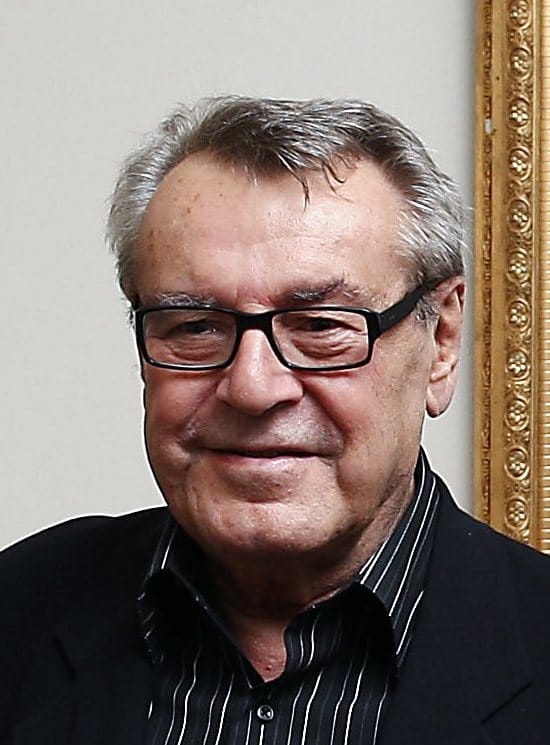
|
Názov: | Miloš Forman Collection - Praha Englishmen Cinema Club |
Hodnocení: | N/A |

Pozriet Online
|
| Kategória: | Filmy bez titulků -   |
Velikost: | 14.8 GB |
BitTorrent klient |
| Pridaný: | 2023-06-16 |
Súbory: |
| Nazov |
Velkost |
| Forman 1981 - Ragtime/Ragtime.1981.mp4 |
2.5 GB |
| Forman 1964 - Černy Petr/Forman.1964.Černy.Petr.srt |
57.3 KB |
| Forman 1965 - Lasky jedne plavovlasky/Forman.1965.Lásky.jedné.plavovlásky.avi |
700.2 MB |
| Forman 1965 - Lasky jedne plavovlasky/Forman.1965.Lásky.jedné.plavovlásky.srt |
61.9 KB |
| Forman 1967 - Hori ma panenko/Hori,ma panenko.1967.mkv |
2.0 GB |
| Forman 1971 - Taking Off/Forman.1971.Taking.Off.avi |
979.4 MB |
| Forman 1975 - One Flew Over the Cuckoo's Nest/Forman.1975.One.Flew.over.Cuckoo.Nest.mkv |
699.0 MB |
| Forman 1975 - One Flew Over the Cuckoo's Nest/Forman.1975.One.Flew.over.Cuckoo.Nest.srt |
130.9 KB |
| Forman 1979 - Hair/Forman.1979.Hair.avi |
699.6 MB |
| Forman 1979 - Hair/Forman.1979.Hair.srt |
103.1 KB |
| Forman 1964 - Černy Petr/Forman.1964.Černy.Petr.avi |
698.0 MB |
| Forman 1984 - Amadeus/Forman.1984.Amadeus.mp4 |
1.1 GB |
| Forman 1984 - Amadeus/Forman.1984.Amadeus.srt |
114.0 KB |
| Forman 1989 - Valmont/Forman.1989.Valmont.mkv |
2.1 GB |
| Forman 1989 - Valmont/Forman.1989.Valmont.srt |
71.8 KB |
| Forman 1996 - People vs Larry Flynt/Forman.1996.People.vs.Larry.Flynt.mkv |
2.1 GB |
| Forman 1996 - People vs Larry Flynt/Forman.1996.People.vs.Larry.Flynt.srt |
131.5 KB |
| Forman 1999 - Man on Moon/Forman.1999.Man.on.Moon.mp4 |
801.7 MB |
| Forman 1999 - Man on Moon/Forman.1999.Man.on.Moon.srt |
123.9 KB |
| Forman 2006 - Goya Ghosts/Forman.2006.Goya.Ghosts.avi |
703.7 MB |
| Forman 2006 - Goya Ghosts/Forman.2006.Goya.Ghosts.srt |
78.7 KB |
|
|
| Skontrolován: | 2023-06-16 |
Peerov: | 1 (Seed: 0, Leech: 1) |
|
| Zaner: | Drama,Komedie,Muzikal,Zivotopisny |
Uploader: | Uvidis, az ked budes
 VIP VIP |
Kúp nám Pivo 1,10€

|



|

Pridaj do zalozky
|
|
|
Quote:
| You temporarily live in CZ or SK? It doesn't matter if you are student, work at some university like me, or work in a branch of some major international company. While you are here, learn something about old Czechoslovakia film industry. If we take into account the size of the population, CS was THE most important in the history of cinema in the period 1960-1989. |
Quote:
| BIG WARNING, If your idea is to watch Czech firemen how they speak English at their annual party, you came to the wrong place. |
Quote:
| Say no to dubbing! Learn to watch Czech and Slovak movies with their original audio. Use English srt files. Give it a try. It is not difficult. |
Jan Tomáš "Miloš" Forman (18 February 1932 – 13 April 2018) was a Czech-American film director, screenwriter, actor, and professor who rose to fame in his native Czechoslovakia before emigrating to the United States in 1968.
Forman was an important figure in the Czechoslovak New Wave. Film scholars and Czechoslovak authorities saw his 1967 film The Firemen's Ball as a biting satire on Eastern European Communism. The film was initially shown in theatres in his home country in the more reformist atmosphere of the Prague Spring. However, it was later banned by the Communist government after the invasion by the Warsaw Pact countries in 1968.Forman was subsequently forced to leave Czechoslovakia for the United States, where he continued making films, gaining wider critical and financial success. In 1975, he directed One Flew Over the Cuckoo's Nest (1975) starring (Jack Nicholson -  ) as a patient in a mental institution. The film received widespread acclaim and was the second in history to win all five major Academy Awards: Best Picture, Director, Screenplay, Actor in Leading Role, and Actress in Leading Role. ) as a patient in a mental institution. The film received widespread acclaim and was the second in history to win all five major Academy Awards: Best Picture, Director, Screenplay, Actor in Leading Role, and Actress in Leading Role.
In 1978, he directed the anti-war musical Hair which premiered at the 1979 Cannes Film Festival. In 1981, he directed the turn of the century drama film, Ragtime, which was known for its large ensemble cast. The film went on to receive eight Academy Award nominations. His next feature was a period biographical film, Amadeus (1984), based on the life of famed classical musician Wolfgang Amadeus Mozart starring Tom Hulce, and F. Murray Abraham. The film was both a critical and financial success earning eleven nominations with eight wins including for Best Picture, and another win for Forman as Best Director. In 1996, Forman received another Academy Award nomination for Best Director for The People vs. Larry Flynt (1996).
Throughout Forman's career he won two Academy Awards, three Golden Globe Awards, Grand Prix at the Cannes Film Festival, Golden Bear at the Berlin Film Festival, a British Academy Film Award, a César Award, David di Donatello Award, and the Czech Lion.
Early life
Miloš Forman's childhood was marked by the early loss of his parents. His mother, Anna Formanová, was murdered in 1943 in the Auschwitz concentration camp, and his father, Rudolf Forman, in the Mittelbau-Dora concentration camp in 1944. Close relatives and friends of his parents raised him. After attending grammar school in Náchod, he went to a boarding school in Poděbrady following the end of the war; among his class-mates were Václav Havel and Jerzy Skolimowski.
Career
Along with cinematographer Miroslav Ondříček and long-time friend from school Ivan Passer, Forman filmed the silent documentary Semafor about the Semafor theater. Forman's first important production was Audition, a documentary about competing singers. He directed several Czech comedies in Czechoslovakia. He was in Paris negotiating the production of his first American film during the Prague Spring in 1968. His employer, a Czech studio, fired him, so he decided to move to the United States. He moved to New York, where he later became a professor of film at Columbia University in 1978 and co-chair (with his former teacher František Daniel) of Columbia's film department. One of his protégés was future director James Mangold, whom he mentored at Columbia. He regularly collaborated with cinematographer Miroslav Ondříček.
1960s
Black Peter (1964)
Black Peter is one of the first and most representative films of the Czechoslovak New Wave. It won the Golden Leopard award at the Locarno International Film Festival.
It covers the first few days in the working life of a Czech teenager. In Czechoslovakia in 1964, the aimless Petr (Ladislav Jakim) starts work as a security guard in a busy self-service supermarket; unfortunately, he is so lacking in confidence that even when he sees shoplifters, he cannot bring himself to confront them. He is similarly tongue-tied with the lovely Asa (Pavla Martínková) and during the lectures about personal responsibility and the dignity of labor that his blustering father (Jan Vostrčil) delivers at home.
Loves of a Blonde (1965)
Loves of a Blonde is one of the best–known movies of the Czechoslovak New Wave, and won awards at the Venice and Locarno film festivals. It was also nominated for the Academy Award for Best Foreign Language Film in 1967.[12]
The Firemen's Ball (1967)
A 1967 originally Czechoslovak–Italian co-production, this was Forman's first color film. It is one of the best–known movies of the Czechoslovak New Wave. On the face of it a naturalistic representation of an ill-fated social event in a provincial town, the film has been seen by both film scholars and the then-authorities in Czechoslovakia as a biting satire on East European Communism, which resulted in it being banned for many years in Forman's home country.[13] The Czech term zhasnout (to switch lights off), associated with petty theft in the film, was used to describe the large-scale asset stripping that occurred in the country during the 1990s.
It was nominated for the Academy Award for Best Foreign Film.
1970s
Taking Off (1971)
The first movie Forman made in the United States, Taking Off won the Grand Prix at the 1971 Cannes Film Festival. The film starred Lynn Carlin and Buck Henry, and also featured Linnea Heacock as Jeannie. The film was critically panned and left Forman struggling to find work. Forman later said that it did so poorly he ended up owing the studio $500.
One Flew Over the Cuckoo's Nest (1975)
Despite the failure of Taking Off, producers Michael Douglas and Saul Zaentz hired him to direct the adaptation of Ken Kesey's cult novel One Flew Over the Cuckoo's Nest. Forman later said they hired him because he was in their price range.[9] Starring (Jack Nicholson -  ) and Louise Fletcher, the adaptation was a critical and commercial success. The film won Oscars in the five most important categories: Best Director, Best Actor, Best Actress, Best Picture and Best Adapted Screenplay. One of only three films in history to do so (alongside It Happened One Night and The Silence of the Lambs), it firmly established Forman's reputation. ) and Louise Fletcher, the adaptation was a critical and commercial success. The film won Oscars in the five most important categories: Best Director, Best Actor, Best Actress, Best Picture and Best Adapted Screenplay. One of only three films in history to do so (alongside It Happened One Night and The Silence of the Lambs), it firmly established Forman's reputation.
Hair (1979)
The success of One Flew Over the Cuckoo's Nest allowed Forman to direct his long-planned film version of Hair in 1979, a rock musical based on the Broadway musical by James Rado, Gerome Ragni, and Galt MacDermot. The film starred Treat Williams, John Savage and Beverly D'Angelo. It was disowned by the writers of the original musical, and, although it received positive reviews, it did not do well financially.
1980s
Ragtime (1981)
It is a 1981 American drama film directed by Miloš Forman, based on the 1975 historical novel Ragtime by E.L. Doctorow.
Amadeus (1984)
Forman's next important achievement was an adaptation of Peter Shaffer's Amadeus. Retelling the story of Wolfgang Amadeus Mozart and Antonio Salieri, it starred Tom Hulce, Elizabeth Berridge, and F. Murray Abraham. The film was internationally acclaimed and won eight Oscars, including Best Picture, Best Director, and Best Actor (for Abraham).
Valmont (1989)
Forman's adaptation of Pierre Choderlos de Laclos's novel Les Liaisons dangereuses had its premiere on 17 November 1989. Another film adaptation by Stephen Frears from the same source material had been released the previous year and overshadowed Forman's adaptation. The film starred Colin Firth, Meg Tilly, and Annette Bening.
1990s
The People vs. Larry Flynt (1996)
The 1996 biographical film of the pornography mogul Larry Flynt brought Forman another directing Oscar nomination. The film starred (Woody Harrelson -  ), Courtney Love, and Edward Norton. Though critically acclaimed, it grossed only $20 million at the box office. ), Courtney Love, and Edward Norton. Though critically acclaimed, it grossed only $20 million at the box office.
Man on the Moon (1999)
The biography of famous actor and avant-garde comic Andy Kaufman (Jim Carrey, who won a Golden Globe for his performance) premiered on 22 December 1999. The film also starred Danny DeVito, Courtney Love, and Paul Giamatti. Several actors from One Flew Over the Cuckoo's Nest appeared in the film, including DeVito.
2000s
In 2000, Forman performed alongside actor Edward Norton in Norton's directorial debut, Keeping the Faith (2000), as the wise friend to Norton's conflicted priest.
Goya's Ghosts (2006)
This biography of the Spanish painter Francisco Goya (an American-Spanish co-production) premiered on 8 November 2006. The film starred Natalie Portman, (Javier Bardem -  ), Stellan Skarsgård and Randy Quaid. It struggled at the box office. ), Stellan Skarsgård and Randy Quaid. It struggled at the box office.
Unfinished projects
In the late 1950s, Forman and Josef Škvorecký started adapting Škvorecký's short story Eine kleine Jazzmusik for the screen. The script, named Kapela to vyhrála (The Band Won It), tells the story of a student jazz band during the Nazi Occupation of Czechoslovakia. The script was submitted to Barrandov Film Studios. The studio required changes and both artists continued to rewrite the script. Right before the film started shooting, the whole project was completely scrapped, most probably due to intervention from people at the top of the political scene, as Škvorecký had just published his novel The Cowards, which was strongly criticized by communist politicians. The story Eine kleine Jazzmusik was dramatized as a TV film in the 1990s. In the spring and summer of 1968, Škvorecký and Forman cooperated again by jointly writing a script synopsis to make a film version of The Cowards. After Škvorecký fled the Warsaw Pact invasion the synopsis was translated into English, but no film was made.
In the mid-1960s Forman, Passer and Papoušek were working on a script about a soldier secretly living in Lucerna Palace in Prague. They got stuck writing the script and went to a village firemen's ball. Inspired by the experience they decided to cancel the script and write The Firemen's Ball instead.]
In early 1970s Forman worked on a script with Thomas Berger based on his novel Vital Parts.
In the early 1990s, Forman co-wrote a screenplay with Adam Davidson. The screenplay, titled Hell Camp, was about an American-Japanese love affair in the world of sumo wrestlers. The picture was funded by TriStar Pictures and cancelled just four days before shooting because of the disapproval of the Japan Sumo Association, while Forman refused to make the changes requested by the association.
In the early 2000s, Forman developed a film project to be titled Ember, adapted by Jean-Claude Carrière from Hungarian novelist Sándor Márai’s novel. The film was about two men in the former Austria-Hungary Empire from different social backgrounds who become friends in military school and meet again 41 years later. Forman cast Sean Connery and Klaus Maria Brandauer as well as Winona Ryder. Several months before shooting, Sean Connery and the Italian producer had a disagreement and Connery withdrew from the project. Forman was so convinced that Sean Connery fit the role that he didn't want to shoot the film without him and cancelled the project a few days before the shooting was due to start.
In the late 2000s, the screenplay for Ghost of Munich was written by Forman, Jean-Claude Carriere, and Václav Havel (the former Czech president and writer, who had studied at school with Forman), inspired by the novel by the French novelist Georges-Marc Benamou. The story takes a closer look at the events that surrounded the Munich Agreement. The role of the French Prime Minister Édouard Daladier was supposed to have been played by the French actor Mathieu Amalric with his older self played by Gérard Depardieu. However, the production company Pathé was not able to fund the project.
Personal life
Forman gave his 18-year-old sister-in-law Hana Brejchová her first film role in Loves of a Blonde, which earned her third place in the Best Actress category at the Venice Film Festival.
Forman was born in Čáslav, Czechoslovakia (now the Czech Republic) to Anna Švábová Forman who ran a summer hotel. When young, he believed his biological father to be professor Rudolf Forman.[20] His parents attended a Protestant church. During the Nazi occupation, Rudolf Forman, a member of the resistance, was arrested for distributing banned books, and reportedly died from typhus in Mittelbau-Dora, a subcamp of the Buchenwald concentration camp in May 1944. Another version has it that he died in Mittelbau-Dora during interrogation. Forman's mother had been murdered in Auschwitz in March the previous year. Forman said that he did not fully understand what had happened to them until he saw footage of the concentration camps when he was 16.
Forman was subsequently raised by two uncles and by family friends. His older brother Pavel was a painter 12 years his senior and he emigrated to Australia after the 1968 invasion of Czechoslovakia. Forman later discovered that his biological father was in fact the Jewish architect Otto Kohn, a survivor of the Holocaust, and Forman was thus a half-brother of mathematician Joseph J. Kohn.
In his youth, Forman wanted to become a theatrical producer. After the war, he attended the King George boarding school in Poděbrady, where his fellow students included Václav Havel, the Mašín brothers, and future film-makers Ivan Passer and Jerzy Skolimowski. He later studied screenwriting at the Academy of Performing Arts in Prague. He was assistant of Alfréd Radok, creator of Laterna Magika. Along with fellow filmmaker and friend Passer, he left Europe for the United States during the Warsaw Pact invasion of Czechoslovakia in summer 1968.
Forman's first wife was Czech movie star Jana Brejchová. They met while making Štěňata (1957). They divorced in 1962. Forman had twin sons with his second wife Czech actress and singer Věra Křesadlová. They separated in 1969. Their sons Petr and Matěj (b. 1964) are both involved in the theatre. Forman married Martina Zbořilová on 28 November 1999, and they also had twin sons Jim and Andy (born 1999).
Forman was professor emeritus of film at Columbia University. In 1996, asteroid 11333 Forman was named after him. He wrote poems and published the autobiography Turnaround in 1994. After a short illness, he died at Danbury Hospital near his home in Warren, Connecticut on 13 April 2018 at age 86. He is interred at New Warren Cemetery in Warren, Connecticut.
various types of 720p encoding
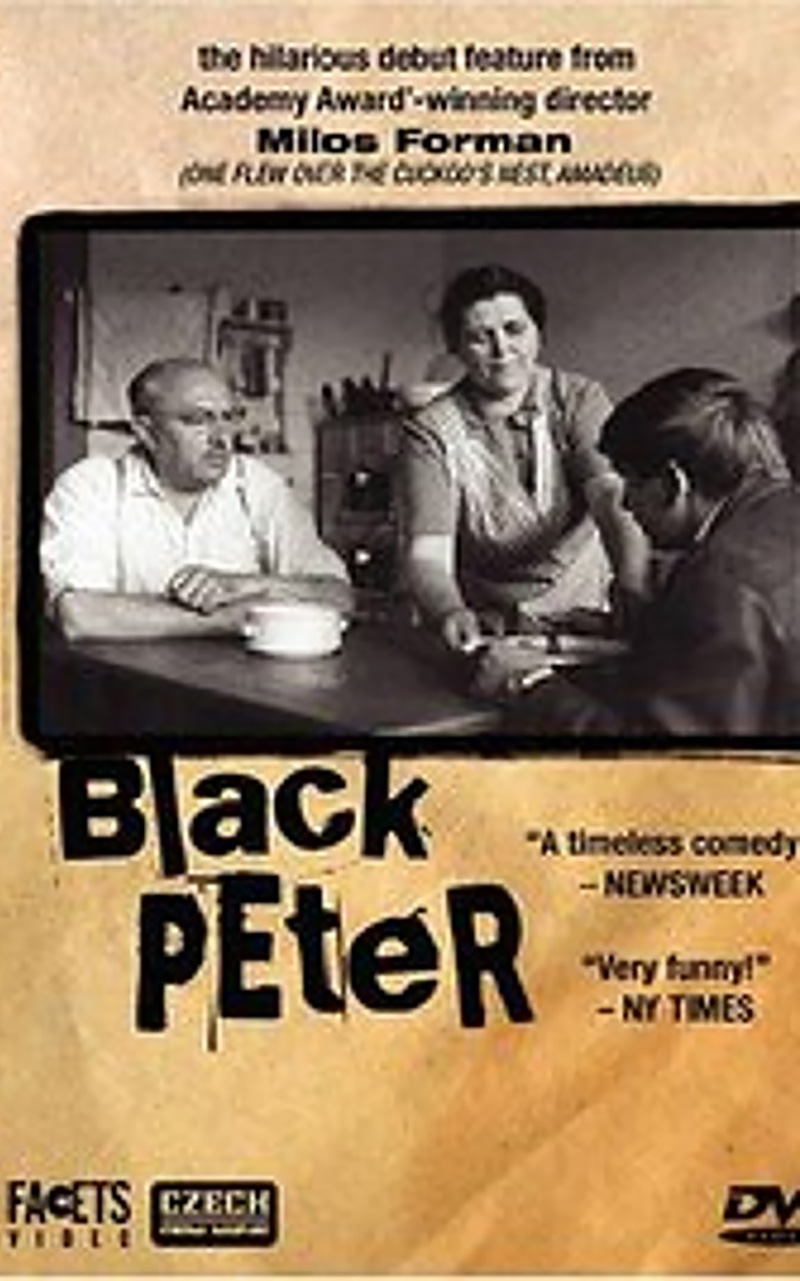
Quote:
| This movie evokes to perfection a time, a spirit, even a country (Czechoslovakia) that no longer exist. It's perhaps the most Godardian film among those not directed by the then innovative French movie maker Jean-Luc Godard. It is full of abrupt cuts, hand-held shots, dialog obviously improvised, and so forth. But Forman's humorous tone is quite far away from Une Femme est Une Femme, or Bande À Part. His background is the neo-realist heritage of everyday topics, non-professional actors, and social concern. (Godard, let me remind you, went from rightist anarchist to Maoist wannabe sharkopath, from pioneering cinematic language to self- indulgent mimic.) Forman's subsequent comedies - namely Loves of a Blonde and Taking Off, were better structured - but Peter & Pavla, almost half a century later, turned into a cute retrospective cameo. |

Quote:
I hadn't seen any of Milos Forman's work before I saw this, and it really surprised me (pleasantly). It was a really funny film, with clever characters, very realistic interactions and some surprisingly cheeseless slapstick moments. Also has a movingly downbeat finale.
I doubt many people will make the effort to watch a little known black and white Czech film from the 60s, but those that do will be rewarded. |

Quote:
Hilarious!
I'm not much of a foreign film fan, and tend to avoid subtitled films. But I ran across this film on TV one day, and it captured me.
It feels as real as a documentary, and it is as funny as movies get. You'll also pick up a real feeling of how another society might be.
Don't miss this, even if you have to buy it. |
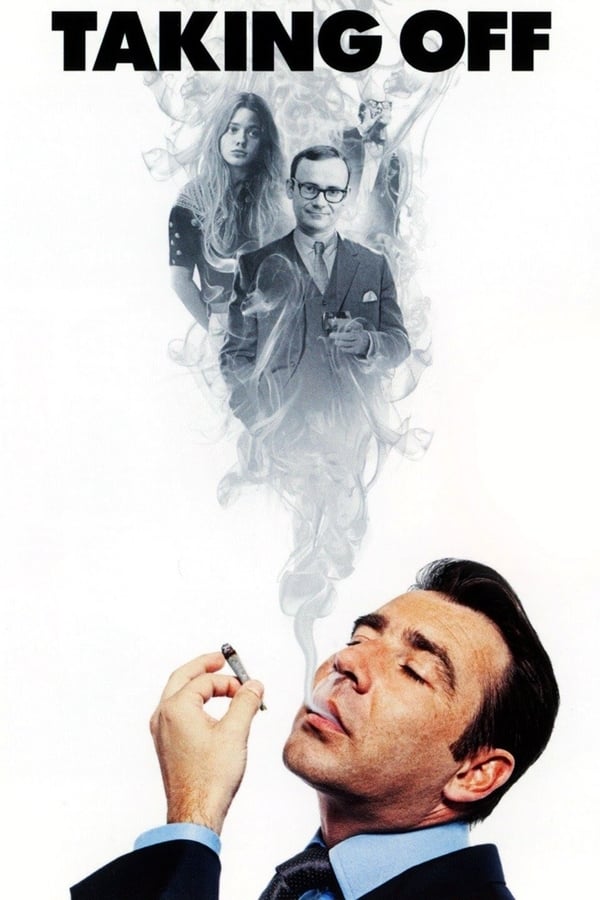
Quote:
Why has this movie been lost?
I saw this movie on it's original release and was mightily impressed. I'd previously seen Forman's "The Fireman's Ball" and liked the quirky style that he repeats so well with this one. The tale of the confused parents trying desperately to understand their "wayward" daughter is gently told but is bitingly satirical. I will never forget scenes of the parents attending the seminar on how to smoke a joint and the convention for the parents of fugitive children. So where has this movie gone? I checked out the on line video store here in the UK to find that it was deleted in 92. Great shame, it's a classic. |
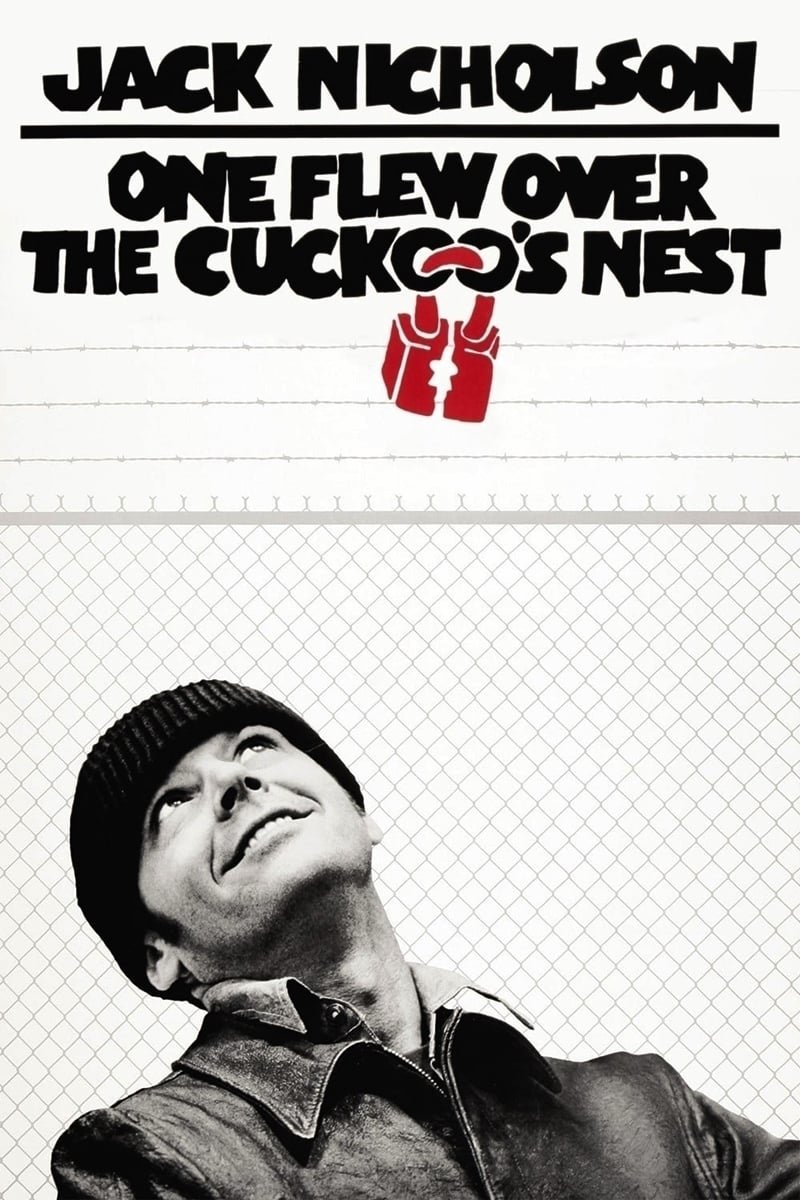
Quote:
Set in the early 60s, the story involves R.P. McMurphy ((Jack Nicholson -  )) and his arrival at a mental institution in Salem, Oregon (where the film was shot). He plays the "mental illness" card to get out of prison time, thinking it'll be a piece of cake, but he's wrong, very wrong. Everything appears well at the hospital and Nurse Ratched (Louise Fletcher) seems to be a benevolent overseer of McMurphy's ward, but there are sinister things going on beneath the surface. )) and his arrival at a mental institution in Salem, Oregon (where the film was shot). He plays the "mental illness" card to get out of prison time, thinking it'll be a piece of cake, but he's wrong, very wrong. Everything appears well at the hospital and Nurse Ratched (Louise Fletcher) seems to be a benevolent overseer of McMurphy's ward, but there are sinister things going on beneath the surface.
"One Flew Over the Cuckoo's Nest" (1975) is a film you'll appreciate more as you mature. I saw it when I was younger and, while I thought it was good, I didn't 'get' a lot of the insights the film conveys.
The movie criticizes the way institutions deal with mental illnesses. Their "therapy" is futile and only makes the patients dependent on the institution itself, thereby creating its need for existence (often at the taxpayer's expense). McMurphy is a threat to the establishment and therefore must be "dealt with."
A lot of people criticize the film by suggesting that Nurse Ratched "isn't that bad" or that "she was only trying to do her job", etc. I had the same reaction the first couple of times I saw it. This reveals an aspect of the film's brilliance: Ratched's malevolence is so subtle that the filmmakers allow the possibility for complete misinterpretation. Yes, from an administrative point of view, she seemingly does a good job, she's authoritarian without being sadistic, and she cares for the residents as long as they follow the rules (more on this below). Yet she is demonic as a robotized arm of a dehumanizing system. She maintains the residents in a state of oblivion and marginalization; they are deprived of their dignity because the system sees them as subhuman.
The filmmakers and Fletcher (not to mention the author of the book, Ken Kesey) make Nurse Ratched a more effective antagonist by showing restraint. Compare her to, say, Faye Dunaway's portrayal of Joan Crawford in "Mommie Dearest," which pretty much turned her into a cartoon villain. Ratched isn't such an obvious sadist, yet she uses the rules to tyrannize the men and reduce them to an almost infantile state of dependency and subservience. Her crowning achievement is Billy Bibbit (Brad Dourif).
McMurphy, despite his obvious flaws, is the protagonist of the story. Although he's impulsive and has a weakness for the female gender, which got him into prison in the first place, he has a spirit of freedom and life. His problem is that he needs to learn a bit of wisdom; then he can walk in his freedom without causing unnecessary harm to himself and others.
Nurse Ratched, on the other hand, represents legal-ism, which is an authoritarian spirit obsessed with laws or rules. This is clearly seen in the World Series sequence: Even though McMurphy gets the final vote he needs for his ward to watch the Series Ratched refuses to allow it on a technicality. When McMurphy then PRETENDS to watch the game and works the guys up into a state of euphoria, Ratched reacts with sourpuss disapproval. That's because legalism is the opposite of the spirit of freedom, life and joy. Legalism is all about putting on appearances and enforcing the LETTER of the law (rule). The problem with this is that "appearances" are not about inward reality and, worse, "the letter kills."
Despite his folly and mistakes, McMurphy does more good for the guys in his ward than Ratched and the institution could do in a lifetime. How so? Not only because he has a spirit of freedom and life, but because he loves deeply, but only those who deserve it - the humble - not arrogant abusers. When you cast restraint to the wind and love with all your heart you'll reap love in return, as long as the person is worthy. A certain person hugs McMurphy at the end because he loves him. McMurphy set him free from the shackles of mental illness and, worse, the institution that refuses to actually heal because it needs mentally ill people to exist; it only goes through the motions of caring and healing (not that there aren't any good people in such institutions, of course).
No review of this film is complete without mentioning the notable character of "Chief" Bromden, played effectively by Will Sampson. |

Quote:
| The 1979 film musical of HAIR was loosely based on the infamous 1960's Broadway musical that became famous because of its infamous nude scene. The stage musical isn't really much more than a group of skits strung together with some amusing musical numbers; however for the film director Milos Foreman (who won an Oscar for directing ONE FLEW OVER THE CUCKOO'S NEST) and the writers have taken the basic premise of the play and the score and constructed a real story to make the show more "user friendly" for the big screen. In the film, naive farm boy Claude Hooper Buchowski (John Savage) is about to go into the army and decides to spend a couple of days in New York where he meets a group of aging hippies (Treat Williams, Dorsey Wright, Annie Golden, Don Dacus)who get him involved in a group of nutty misadventures, including the pursuit of a snooty society girl (Beverly D'Angelo). The story divides into a series of vignettes that range from the ridiculous to the sublime, but it is all gorgeously photographed with a clever use of NYC locations and imaginatively staged musical numbers (outstandingly choreographed by the legendary Twyla Tharp). Treat Williams lights up the screen as Berger, the unconventional and free-spirited hippie who does his best to get Claude to loosen up and is matched scene for scene by Savage as Claude, who brings a lovely sweetness to the role of Claude. Annie Golden is a charmer as Jeannie, the pregnant hippie who is pregnant by Wright or Dacus, doesn't know which one is the father and doesn't seem to care. There is one outstanding musical number after another here..."Aquarius" is a tour through Central Park which includes dancing horses...Treat Williams disrupts a fancy dinner party in "I Got Life"..."Black Boys/White Boys" features the late Nell Carter and Ellen Foley extolling the ethnic virtues of men and "Easy to be Hard" is a powerful rendering of one of the best songs in the show by original cast member Cheryl Barnes, who plays Wright's ex-girlfriend and mother of his child. This is a beautifully photographed, well-acted sung, and danced psychedelic acid trip of a movie that must be seen and once seen, will initiate multiple viewings as this dazzler has to much to offer to catch it all in one showing. |
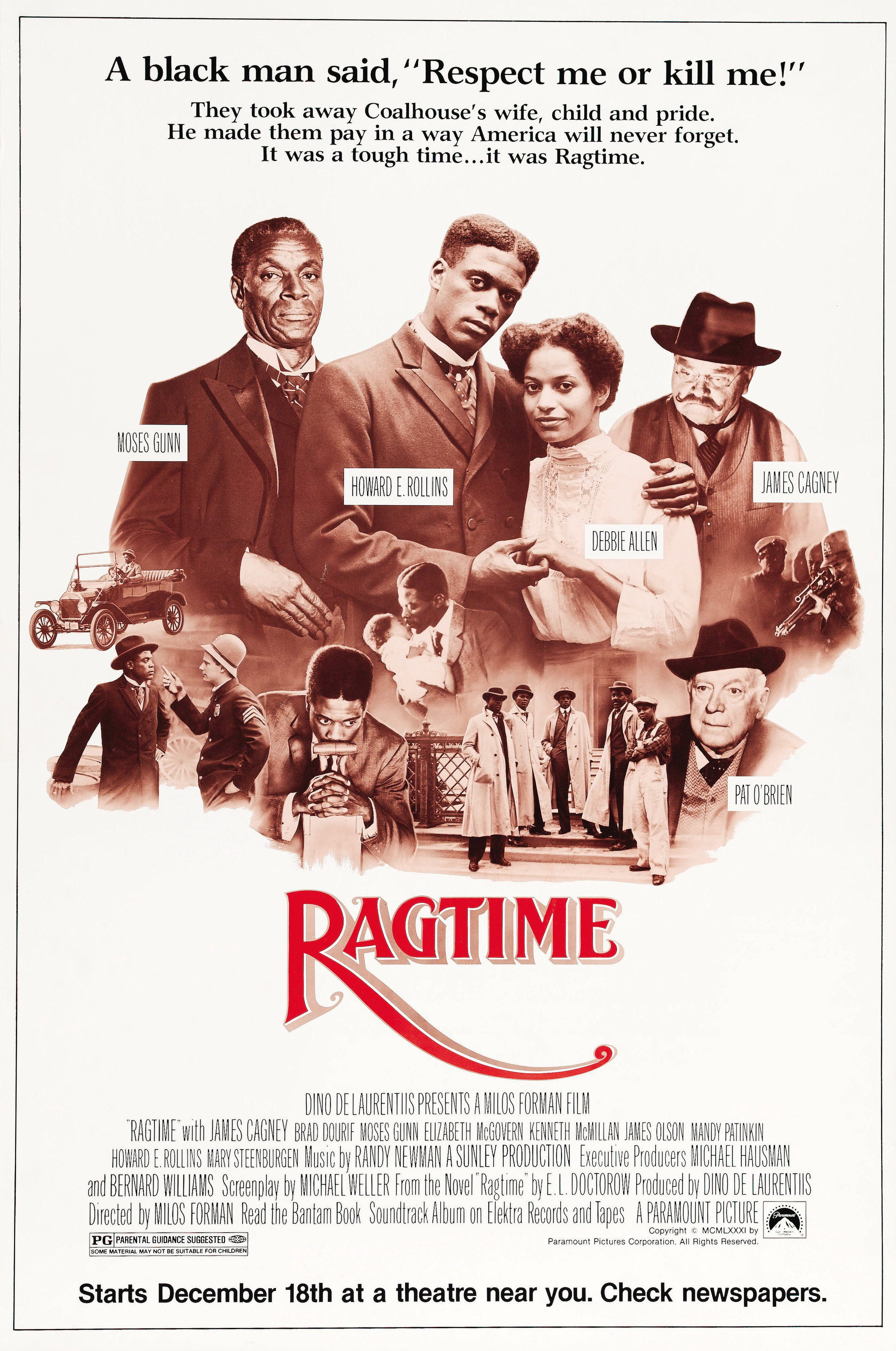
Quote:
Back in the day when Hollywood was grinding out B westerns it wasn't unusual at all to see famous folks of the west in stories that had absolutely nothing to do with their own lives or to see many famous people interacting when they never even met in real life.
Ragtime revives some of that dubious tradition in filming E.L. Doctorow's novel about the Teddy Roosevelt years of the first decade of the last century. Teddy figures into this briefly as does his Vice President Charles Fairbanks. Booker T. Washington is here too, as are the principals of the Stanford White murder, and New York City Police Commissioner Rhinelander Waldo.
It's quite a blend because Roosevelt and Fairbanks ran for re-election in 1904 as Fairbanks is shown delivering a campaign speech. He wasn't even Vice President then, just a Senator from Indiana. Fairbanks was running for Vice President because Roosevelt had no Vice President in his first term. He succeeded to the presidency when Willima McKinley was assassinated.
The Stanford White murder took place in 1906 and was then called the crime of the century. Many such murders right up to O.J. Simpson were given that dubious distinction. And Rhinelander Waldo was not NYPD Police Commissioner until 1910 and he was much younger than James Cagney.
Still and all E.L. Doctorow's book is made into a fine film which got a whole bunch of Academy Award nominations including Best Picture, Best Director for Milos Forman and Supporting player nominations for Howard Rollins, Jr. and Elizabeth McGovern.
The main story is about Coalhouse Walker, Jr. a black ragtime pianist and his Sarah. She has his baby and they'd like to get married. But a whole lot of things, some of them peripherally connected to the true events and people previously mentioned that lead him and a gang to take possession of the Morgan Library and threaten to blow it up.
Howard Rollins was a real tragedy. This was a great start to a short, but brilliant career that included his long running role as Virgil Tibbs in the TV series In the Heat of the Night and the film A Soldier's Story. He died way too young from AIDS contracted from a lot of intravenous drug use.
Elizabeth McGovern is the famous Evelyn Nisbet, the girl on the red velvet swing which was the title of another film that dealt with the Stanford White murder. McGovern's performance is probably closer to the real Evelyn than Joan Collins was in that earlier film. She's basically a goldigger who juggled two men, her husband Harry K. Thaw and her upscale lover, society architect Stanford White. Her circus act led to White's death, Thaw's commitment to an insane asylum and a vaudeville career for her.
Ragtime was eagerly awaited because of the anticipated return of James Cagney to the screen after being off for 19 years. Cagney is clearly aged, but he gets through the role because unlike that television film Terrible Joe Moran, he's not the center of the film, though he's first billed. Note that he's sitting down during most of his performance and when he has to stand the camera is a discreet distance. It's nothing like the bouncing Cagney of old, but light years better than Terrible Joe Moran.
This was also the final joint appearance as it turned for the team that invented the buddy film, James Cagney and Pat O'Brien even though they have no scenes together. O'Brien is Harry K. Thaw's attorney and Mrs. O'Brien plays Thaw's mother under her maiden name of Eloise Taylor. She was an actress before she married Pat, but gave up her career to raise their four children.
Author Norman Mailer plays Stanford White, fulltime architect and hedonist and Robert Joy plays the demented millionaire Harry K. Thaw and both fit the parts perfectly. Maybe one day we will have a definitive film version just concentrating on the murder and it's aftermath for the three principals.
Milos Forman gave us a remarkable evocation of an exciting time in American history. It seemed that America had limitless possibilities then. I doubt they'll be saying that about the first decade of this century. |
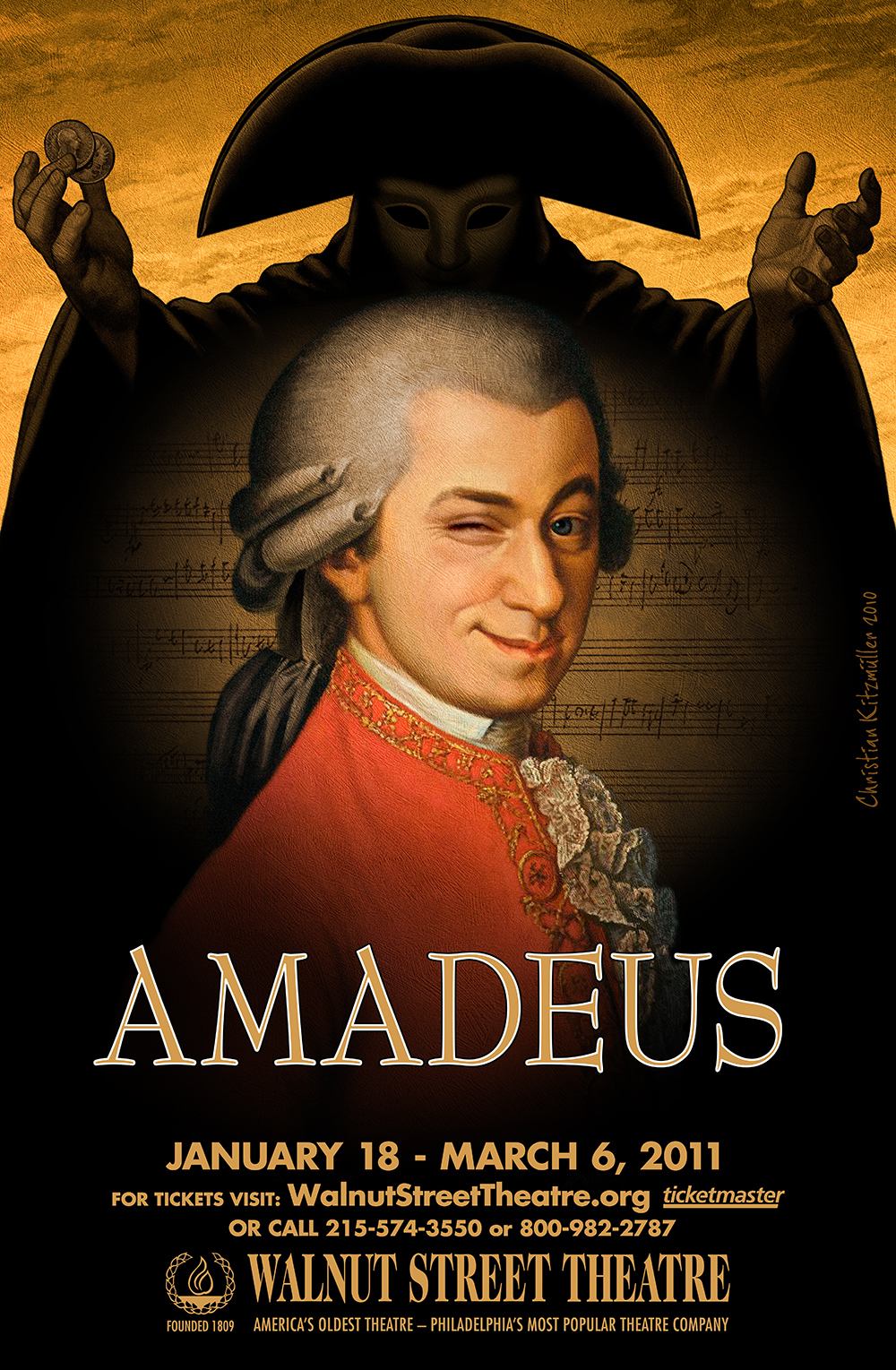
Quote:
| When the two worlds of Antonio Salieri and Wolfgang Amadeus Mozart collide in Milos Forman's Amadeus, it is anything but a symphony. As the court composer of the Emperor of Austria, all Salieri desires are fame and recognition as a composer; it is all he had wanted his whole life. When he learns that Mozart, whose name he had known as long as he can remember, is going to come to the court to play, Salieri cannot wait to meet the outstanding and righteous man that he knows he must be. However, when Salieri learns that Mozart is a young, crude, and unrefined young man, endowed with all the talent and ability that he ever wanted and strived for, it plants a seed of jealousy that soon grows into bitter resentment and hatred, not only for Mozart, but also towards God. Salieri's desire to get rid of him is seemingly boundless as he plots and schemes for Mozart's demise. It is no wonder why Amadeus won eight Academy Awards, including Best Picture, with 5-Star performances by F. Murry Abraham as Antonio Salieri and Tom Hulce as Mozart. Amadeus is an emotionally charged and tragic piece, a story of the life of one of the world's most famous composers, as seen through the eyes of his worst enemy. |
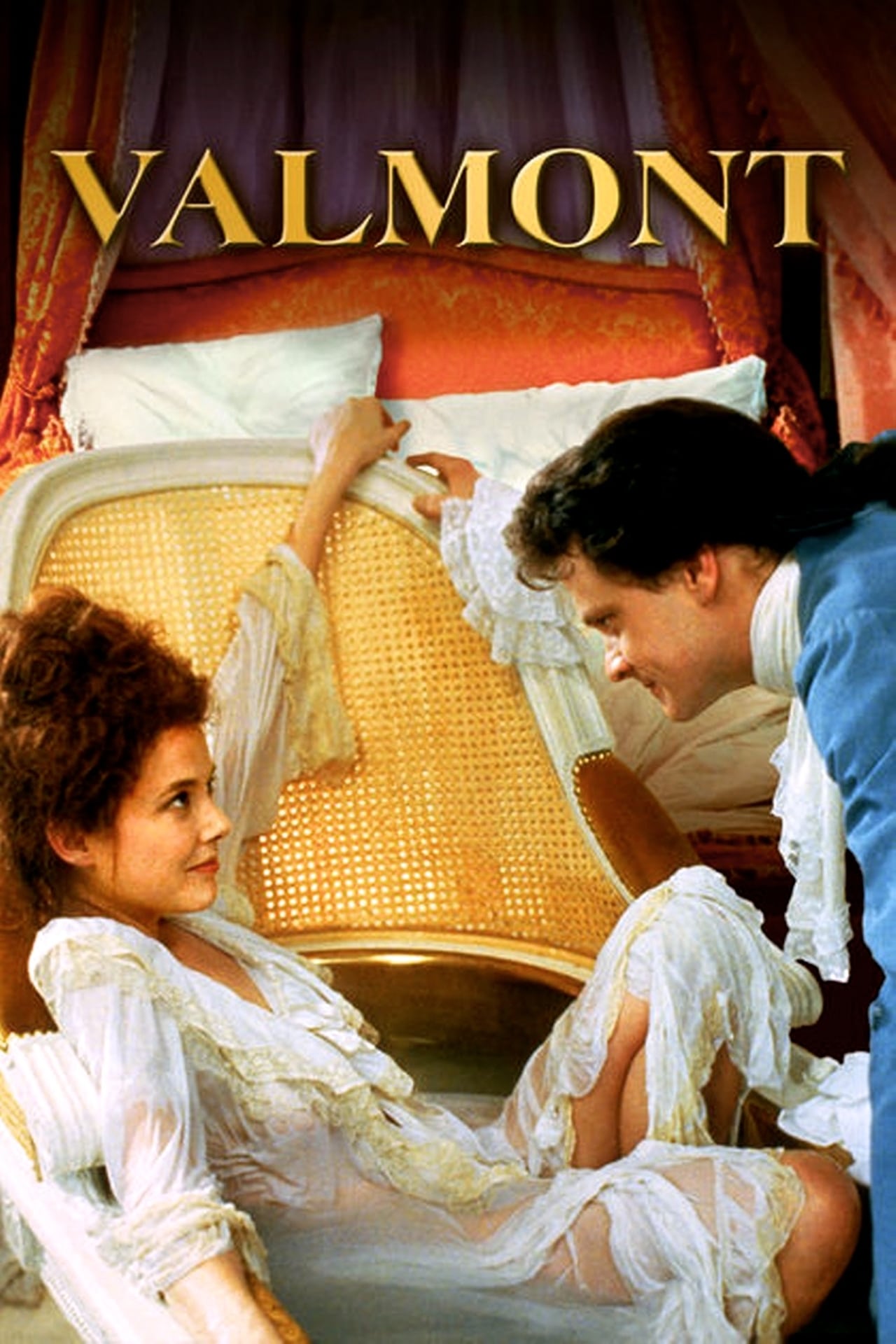
Quote:
Stunning version of "Dangerous Liaisons"
"Valmont" is a 1989 film based on the novel Les Liaisons Dangereuses by Choderlos de Laclos, as well, of course, the better-known film Dangerous Liaisons starring Glenn Close and John Malkovich.
Here, Annette Benning is the Merteuil who is stunned to learn that her lover, Gercourt (Jeffrey Jones) is betrothed to the fifteen-year-old virginal Cecile (Fairuza Balk). She makes a bet with her Casanova-like friend Valmont (Colin Firth) that he can seduce Cecile so that on her wedding night, she is not a virgin, thus giving Merteuil revenge against Gercourt. Of course, the best-laid plans and all that - Cecile is in love with her music teacher (Henry Thomas), and Merteuil aids and abets the romance as much as possible. But things become more and more complicated, with Valmont, the eternal playboy, actually falling in love himself. And as the story says, once you fall in love, your power is gone.
This film is far superior to the more famous one. Forman is a fantastic director, and the cast warms up what is basically a cold, calculated story and really makes you care.
Annette Bening is more full-dimensional than Close's Martueil - she's beautiful, smart, and she's so sweet and lies so beautifully one has no idea what she's really like. Firth's Valmont is far more believable than Malkoitch's egomaniacal portrayal.
Henry Thomas is the desperately in love music teacher - it's good casting, but he comes off as too modern. It's a minor point because the entire cast is wonderful, including Fabia Drake as Madame de Rosemond, Sian Philips, Meg Tilly, and Fairuza Balik.
The film is beautiful to look at, sumptuously and carefully produced. It's a sad case of being the second film version out when the first was better marketed with a more American cast. Nevertheless, it's not too late to discover this gem. |

Quote:
Oscar Winning Milos Forman's The People Vs. Larry Flynt is a fascinating (if not too trashy) look at how without the first amendment, people like Flynt would not exist. We see an expose on the man, myth and legend of master porno publisher Larry Flynt (played to damn close perfection by Oscar nominated (Woody Harrelson -  )) who releases Hustler (in my opinion the best porno mag ever, but that's just me) and gets severe backlash from censors, church people and just people in general. But, we see his struggle to fight back at any cost (even his legs) to send a message- just because you don't like doesn't mean you can't let me publish what I want. Forman directs this pumped drama with 5-star performances from Harrelson, Love (as the tragedy queen girlfriend) and Especially Norton (as the suffering yet compelling lawyer). Never ashamed and always On the edge, this film has a place not only in film history, but in Hustler magazine's also. The real Flynt appears as a Cinncinatti judge and Norm MacDonald appears as a reporter. A+ )) who releases Hustler (in my opinion the best porno mag ever, but that's just me) and gets severe backlash from censors, church people and just people in general. But, we see his struggle to fight back at any cost (even his legs) to send a message- just because you don't like doesn't mean you can't let me publish what I want. Forman directs this pumped drama with 5-star performances from Harrelson, Love (as the tragedy queen girlfriend) and Especially Norton (as the suffering yet compelling lawyer). Never ashamed and always On the edge, this film has a place not only in film history, but in Hustler magazine's also. The real Flynt appears as a Cinncinatti judge and Norm MacDonald appears as a reporter. A+ |

Quote:
This is a story about a man who lived and died without being understood.
It is truly sad that we have to wait until a person is dead and gone to give him or her the honor they should have received while alive. Andy Kaufman was a man of many talents, and I saw him only as this funny little man on a TV show called, "Taxi" with a cute accent. Who could not fall in love with that person he was on "Taxi"? He was cute, honest, kind, and funny! Who knew that while we were all at home laughing, he was crying on the inside because that wasn't who he was, nor wanted to be. I went to see this movie about a person who was famous for his "Elvis" personation, and his little record player, doing the "Mighty Mouse" skit on Saturday Night Live, never to forget "Latka" on "Taxi." He was a man of many talents, so many that the world never knew about, so many that only Andy knew who he really was. Jim Carrey allowed us to come into Andy Kaufman's mind, and realize that this grown man lived in another place, another time, an entire other world where Andy was free, and there was peace, and where everyone never grew up, they stayed children playing "pretend" forever.
Jim Carrey put himself into this part, he lived this role... He was Andy Kaufman. Carrey was able to show me a whole new light on this man I thought I knew. This funny man who could make you laugh just by walking on stage. Jim Carrey showed us that who we saw, was not the man we thought we knew. And it took his death to show the world that Andy Kaufman was in fact a human being, who just needed a hug, and a chance at what he did best.
This sadness me to realize that our joy brought this man pain, who we wanted was not who he wanted to be, and I think everyone should be able to live the dream they choose. I never cry at movies, because I am able to pull myself back and remind myself that it is just a movie, and those are just actors. Jim was Andy, and what I saw was too true for me to tell myself, "It's only a movie."
This is a story about a man who lived and died without being understood. I cry for the person Carrey brought us into, the life he showed us that was hidden for too long. No one could have given Andy such a life as Carrey did. This movie is not a normal movie, it is art in the most beautiful form imaginable. To sit in a theater and be at aw... for two hours is amazing! I only wish we had known Andy Kaufman when he was truly alive. Now it is too late, the curtain has gone down... |
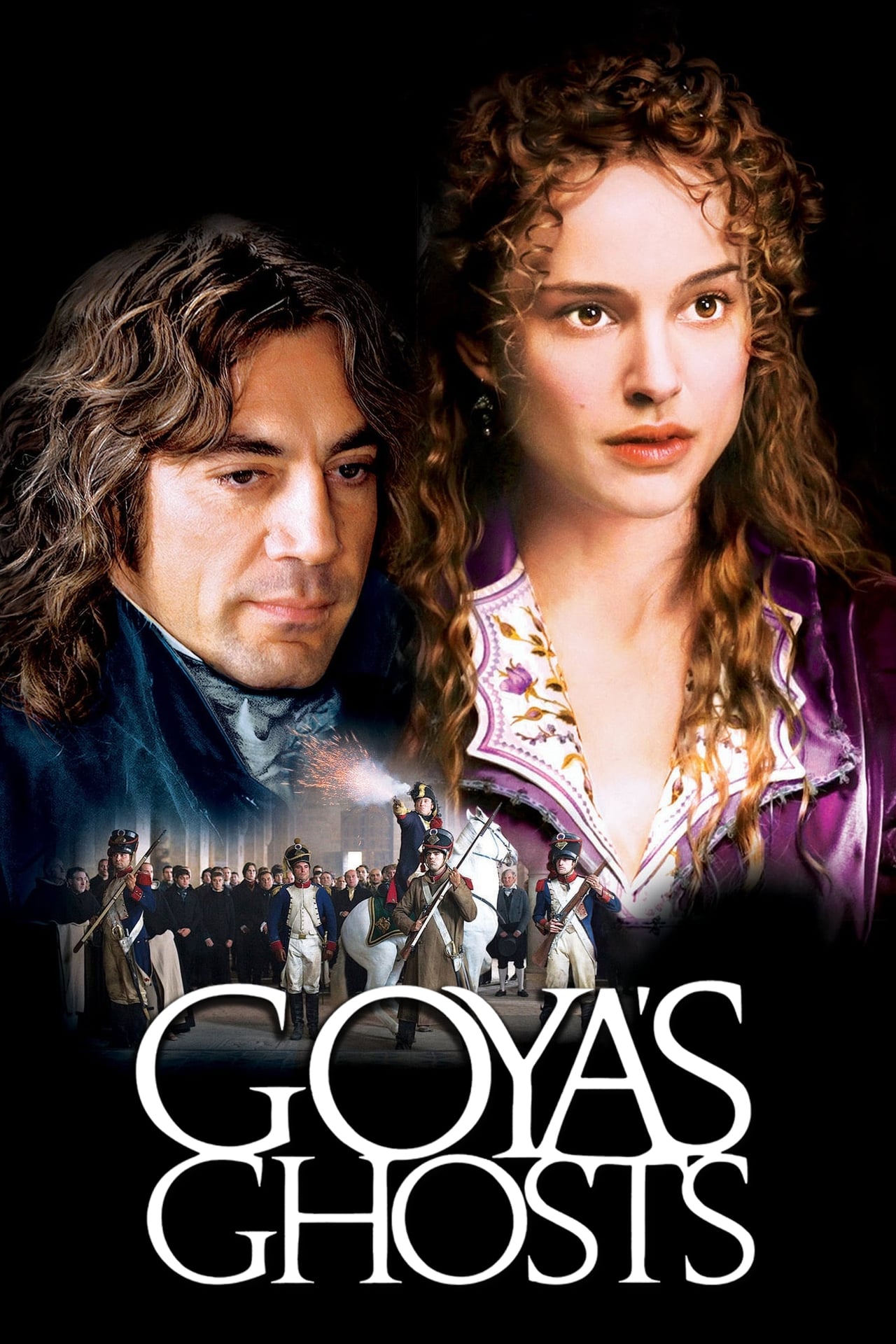
Quote:
Good picture full of biographic moments and sensitive drama along with the Inquisition and French invasion
The film is set in 1792 ,it deals with eclectic people during a convulsed era from Spain history . It starts with the Inquisition and some years later with the encroachment by Napoleon Army and finishes with the French defeat and restoration of the Spanish monarchy with Fernando VII , after the victory by general Wellington (Cayetano M. Irujo) . The painter (1746, born Fuentedetodos and deceased 1828,Burdeos) Francisco de Goya (Stellan Skarsgard) , quintessential Spanish artist , becomes involved with the Spanish Inquisition , when his muse named Ines (director cast Natalie Portman after noticing her likeness to the girl in Goya's painting "Milkmaid of Bordeaux") who painted her like an Angel in the church of Saint Antonio of Florida and he's now portraying , she then is framed as a heretic . His daddy named Thomas Bilbatua (Jose Luis Gomez) ask him help , hoping what his relationship with the monk Lorenzo ((Javier Bardem -  )) can achieve the freedom for his daughter . Meanwhile , Goya is dedicated the painting of the portrait the royal family : Carlos IV (Forman cast Randy Quaid as the King of Spain after seeing his work in ¨Elvis¨ by phoning him and saying, "You are a great actor , you must be my King or I must repaint Goya") , Mª Luisa (Blanca Portillo) and children . )) can achieve the freedom for his daughter . Meanwhile , Goya is dedicated the painting of the portrait the royal family : Carlos IV (Forman cast Randy Quaid as the King of Spain after seeing his work in ¨Elvis¨ by phoning him and saying, "You are a great actor , you must be my King or I must repaint Goya") , Mª Luisa (Blanca Portillo) and children .
The film is a touching drama added with historic elements and formidable performances . The movie creates a canvas upon a turbulent epoch concerning specially with Inquisition . It was created by Pope Sixto IV in 1478 , its creation is supposedly caused for threat by Jewish and Moors becoming Christianism but practically disappeared with the Borbons Kings (Felipe V,Fernando VI and Carlos III) and was definitively abolished by the Court of Cadiz though spontaneously restored by Fernando VII in 1814 . The sentences were executed by means of a public event called ¨auto of faith¨(thus happens on the final) . Near the end, when the king appears in the balcony at the execution scene, some people yell "Vivan Las Cadenas!" (Long live the chains!). This salute was coined in 1814 by Spanish monarchists when Fernando VII was restored to the throne with absolute powers, thus abolishing the Constitution of Cadiz, which was established by Napoleonic authorities.
The flick displays an interesting showing the means are manufactured the famous Goya's engravings : ¨The war disasters¨ , ¨bullfighting¨ and ¨Caprichos¨ . Besides , recreating historical happenings such as ¨Charge of Mamelucos¨ and ¨Execution on mountain of Principe Pio¨. The movie contains a top-notch star-studded cast , as Skarsgard , Portman , Bardem give a sensational interpretations . Scenarios are luxurious and impressive , being designed by the prestigious Patrizia Von Brandenstein , the sets including palaces , rooms , interiors and outdoors are mesmerizing . Lush and brilliant costume design by Ivonne Blake (Oscar for Doctor Zhivago and Nicholas and Alexandra). Colorful cinematography by expert Spanish cameraman , Javier Aguirresarobe , (The others) . The film was lavishly produced by the brothers Saul and Paul Saentz , Forman's usual producers .The motion picture was well directed by the classic Milos Forman , an expert about biographies of notorious characters such as ¨Amadeus¨ , ¨Larry Flynt¨ , ¨Andy Kauffman¨ (Man on the moon) ; besides filming a lot of successes like are ¨Ragtime¨ ,¨Hair¨, ¨Valmont¨ , and of course , his greatest hit ¨Someone flow the Cucko nest¨. |

Quote:
| Won 2 Oscars. 49 wins & 29 nominations total. |
pohee,
+ Pridaj vlastnu verziu tohto torrentu +
|
Upozornenie:
Ziadny zo zobrazených súborov sa nenachádza na tomto serveri. Server slúzi len k síreniu vlastnorucne vytvorených aplikácií, videí, hudby ai. Autori stránok nenesú ziadnu zodpovednost za zverejnené odkazy, komentáre a obsah súborov. Vsetky komentáre, odkazy, súbory ktoré by svojou povahou mohli byt v rozpore zo zákonmi sem vkladáte na vlastnú zodpovednost. Autori stránok si vyhradzujú právo cenzúry odkazov, komentárov príp. súborov, ktoré by svojou povahou mohli byt v rozpore zo zákonmi a dobrými mravmi. Dodrzujte pravidlá! |
Uploader
|
24/06/2023 23.52.14
This torrent is being monitored weekly. Plesa post a comment here if you need a restart. You can also post suggestions for future uploads.
|
Back
|
|








 )
) - Mediainfo
- Mediainfo









